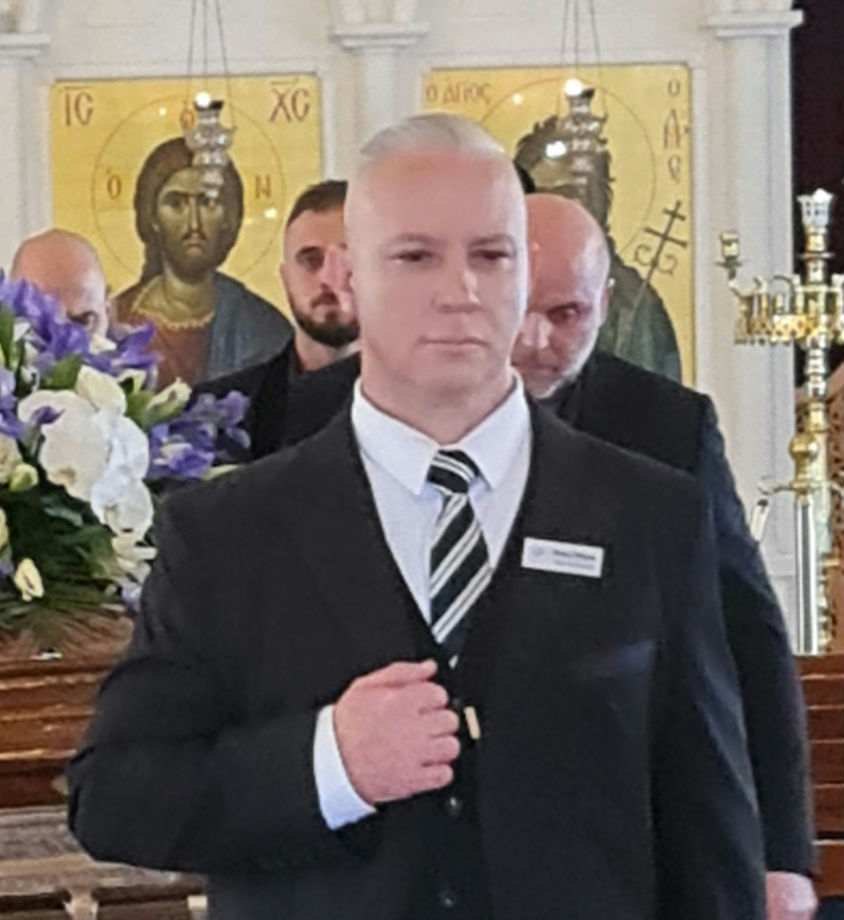Funeral Costs: Exploring Your Options
- Bruce Missen
- May 30, 2024
- 5 min read
Updated: Nov 18, 2024
Losing a loved one is an emotionally challenging experience, and dealing with the financial aspects of a funeral can add an extra layer of stress during an already difficult time. However, there are various ways to prepare for and cover the costs associated with funerals. In this article, we'll explore some common methods, including funeral insurance, funeral bonds, prepaid arrangements, family bank accounts, and crowdfunding platforms like GoFundMe, along with their pros and cons.
Funeral Insurance
A funeral insurance policy gives your family a lump sum payment to pay for funeral expenses when you/r loved one passes.
You pay monthly or fortnightly premiums (ongoing payments) for a fixed amount of cover. Usually, you can choose from $5,000 to $15,000 cover, which will be paid to you/r family when they pass.
You are not saving for funeral costs with funeral insurance. You are buying insurance to meet those costs at some future date.
Funeral Bonds
A funeral bond is an investment offered by a friendly society or life insurance company to allow you to set aside money to cover your funeral costs. A funeral bond provides benefits only upon the death of the nominated person and cannot be accessed earlier.
A funeral bond is a down payment on a funeral with recurring monthly payments over time. Over time, the value of your money increases as interest accumulates. The funds must be in the funeral bond are only for funeral costs and nothing else.
Prepaid Funeral Arrangements
A pre-paid funeral allows you to plan and pre-pay the exact service you'd like in full, with no extra costs for your family to cover later.
You can include anything in a prepaid funeral, well almost. We’ll help you work out the type of funeral you’d like. We’ll plan everything from the venue to the music, floral arrangements and refreshments. We can include any personal touches you’d like, including a eulogy from someone special or a poem, prayer or passage from a religious text.
Family Bank Account
This enables family members to collectively contribute funds for funeral expenses and offers transparency and control over how funds are used. Family bank account avoids the need for complex financial arrangements or contracts and can foster a sense of shared responsibility and support among family members.
You need to be mindful that it does require coordination and communication among family members to ensure contributions are made.
Crowdfunding Platforms (e.g., GoFundMe)
A GoFundMe campaign is a simple and secure way for families to get financial help with funeral costs. A funeral fundraiser can also be a way for families and friends to connect and support one another through the loss of a loved one. It could be an alternative to receiving flowers.
It is free to set up an account, which can be shared on social media and sent to family and friends.
Be mindful, most funeral directors usually need payment before the funeral service, which means families sometimes need to come up with the funds quickly.
Accessing Superannuation
You may be eligible to withdraw some of your super early on compassionate grounds – such as for medical, disability or funeral expenses – if you cannot pay for these expenses without accessing your super.
You need to note that any super you withdraw for this purpose will be taxed and the tax amount will be deducted from the lump sum payment. The tax rate varies depending on your age and other factors.
The superannuation fund is not obliged to release your funds early if their policy does not allow early access. If your fund does allow early access, you need to apply to the ATO.
Lump Sum or Short-Term Bereavement Payment from Centrelink
If you're an Australian citizen and dealing with the loss of a partner, you may be eligible for Centrelink bereavement payments. The Australian federal government may provide several payments to help when a loved one passes. The type and amount of the payment depend on individual circumstances.
Australian citizens may access to the following Centrelink bereavement payments:
Partner Allowance
Pension Bonus Bereavement Payment
Carer's Allowance
Double Orphan Pension
Stillborn Baby Payment
Assistance from the Department of Veterans' Affairs (DVA)
Australia's Department of Veterans' Affairs could offer financial assistance towards different funeral costs for your loved one if they were an ex-servicewoman or man. If you're the spouse or carer of the deceased person and they were receiving a pension from the Department of Veteran Affairs, you may be eligible for a bereavement payment.
Contributions from Registered Clubs, Associations, and Trade Unions
If your loved one has been a long standing member of a registered clubs and associations such as Rotary, RSL and trade unions etc may offer to contribute to the costs of a member's funeral.
They may also provide additional support and solidarity from community organisations and peers during a time of loss.
Destitute Funeral
If the deceased person has no money or assets they are called 'destitute'. If a destitute person dies, the government may pay for their funeral. The Area Health Service will pay for a basic funeral service. The Area Health Service will contact the next of kin with the details of the funeral. Usually, the Area Health Service will organise for the deceased person to be cremated unless the deceased person's next of kin asks for them to be buried. If the deceased person is to be buried it will be in a common grave and the deceased person will be identified by number.
Destitute funerals are typically basic in nature and may not include additional services or customisation options.
Compulsory Third Party Green Slip Scheme
If someone dies due to a motor vehicle accident in NSW, the compulsory third party (CTP) Green Slip insurance scheme can cover reasonable funeral expenses.
This may include costs for the:
funeral director
funeral service (incl. cremation or burial)
coffin
mourning car
cemetery site
flowers
newspaper notice
death certificate.
If the person who has died lived elsewhere in Australia and was visiting NSW at the time of the accident, funeral expenses cover the reasonable costs of transporting the deceased to an appropriate place for burial or cremation, or their usual place of residence. If their usual residence was in a country other than Australia, funeral expenses include the reasonable cost of transporting the deceased person to that country. claims process may be challenging, accessing compensation through CTP insurance can help cover funeral expenses and provide financial support to families during a difficult time of grief and loss.
In conclusion, there is no one-size-fits-all solution for covering funeral expenses, and the best approach will depend on individual circumstances, preferences, and financial means. It's essential to carefully consider the pros and cons of each option and to plan ahead to ensure that your wishes are met and your loved ones are not burdened with financial stress during a difficult time. Whether through insurance, savings, prepaid arrangements, collective contributions, or crowdfunding, taking proactive steps to prepare for funeral costs can provide peace of mind and alleviate some of the financial strain during an already challenging period.









Comments